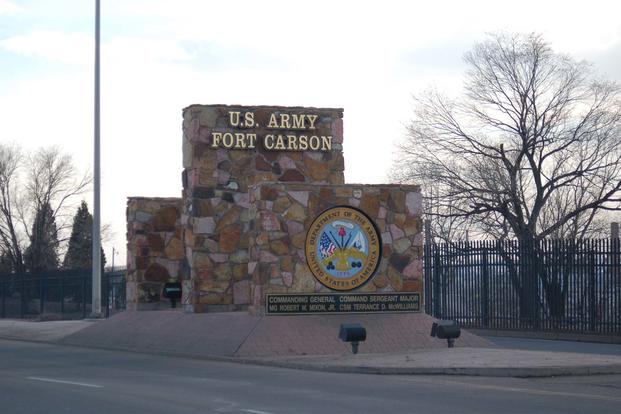After donors gave more than $50,000 to Fort Carson Sgt. 1st Class David Hong to cover the cost of a new cancer treatment, the soldier now expects to give it all away to other cancer patients.
"I was just blown away," Hong said, about the outpouring of support.
Hong, a religious affairs specialist, wants to see the money help other veterans and soldiers with cancer after his insurance provider, TRICARE, changed its position and paid for the treatment, called histotripsy, to remove tumors from his liver.
"That's the right thing, you know," he said, noting he expects donors will feel similarly.
Hong was diagnosed in July 2022 and has been through numerous treatments for the stage 4 colon cancer that spread to other areas of his body, such as his liver and lungs. The care has included 23 chemotherapy treatments and several surgeries, including one that removed part of his liver.
In mid-August at HCA HealthONE Presbyterian St. Luke's in Denver, Hong got the histotripsy procedure that relies on ultrasound to liquefy tumors and places far less strain on the body than surgery. The dead tumor cells leave the body naturally, and it doesn't require any heat, radiation or chemotherapy.
The Food and Drug Administration approved the machine that delivers ultrasound waves, called the Edison System, for use in 2023. The maker, Histosonics, is also testing the technology to treat kidney tumors.
While the treatment is new, Medicare covers histotripsy when it is deemed necessary, and it is gaining acceptance among private insurers. Highmark Blue Cross Blue Shield announced it would cover the treatment for its customers in New York, Delaware, Pennsylvania and West Virginia in July, according to a news release.
Hong said he hopes his story raises awareness about the importance of histotripsy as a less invasive option for cancer patients.
"You always have to have one person that needs to … make different organizations understand that this treatment is the future, and they need to accept it and they need to allow it," he said.
Hong believes his cancer was caused by his service in Afghanistan, in part, because he doesn't have a history of colon cancer in his family.
Research through the HunterSeven Foundation found a few years ago that 520,966 active-duty service members since 9/11 have been diagnosed with cancer. The Department of Veterans Affairs also now assumes that a litany of cancers in Post 9/11 veterans are caused by exposure to toxic burn pits.
The HunterSeven Foundation raised the money for Hong through Zeffy, a fee-free fundraising platform for nonprofits, in an outpouring that exceeded the $45,000 requested.
"I'm very thankful for the support, but it's going to go to a greater cause," he said.
A week after his histotripsy in late August, Hong said he hoped to start working out again in a few days and he was aiming to participate in the Department of Defense's Warrior Games next year as he did this summer.
He is looking forward to sit-down volleyball, the rowing team and archery. He particularly loves team sports.
The adaptive sports helped him through the stress of his treatment, both mentally and physically. Transitioning to a vegan diet also made a huge difference, he said, noting it was a big change for an immigrant from Brazil used to a meat-heavy diet.
He is also medically retiring from the Army. After enlisting at 36, he is now 52 and expects to stay in Colorado Springs and spend time with his family, including his wife Monica and his three daughters.
© 2025 The Gazette (Colorado Springs, Colo.). Visit www.gazette.com. Distributed by Tribune Content Agency, LLC.












